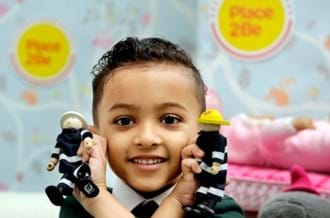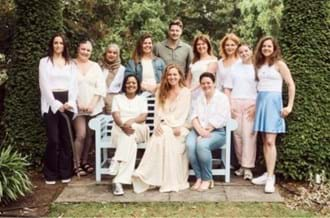New report uncovers the mental health struggles of young British Muslims
A new report from The Better Community Business Network (BCBN) and the University of East London, School of Psychology, looks at the obstacles faced by young Muslims in their battle to maintain their mental health.

‘Hidden Survivors, Uncovering the Mental Health Struggles of Young British Muslims’ was launched today at an event with Dr Rosena Allin-Khan MP, Dr Ghazala Mir, Place2Be, Rethink Mental Illness and Mind in the City, Hackney and Waltham Forest.
The report, which was based on the responses of 729 young Muslims, reveals that:
- Over 70% of those who say they experience mental health struggles also say that have been victims of Islamophobia
- 64% of young Muslims said they experience suicidal thoughts
- More than 2/3 of participants experiences bullying (mainly in a public setting). Over 70% say bullying occurred in schools
- Anxiety, depression, and stress are the most common mental health issues among young Muslims
- 90% of service users said it was important for mental health support services to be faith and culturally sensitive
The findings highlight the need to address the causes of poor health outcomes among minority ethnic groups by tackling structural racism and negative experiences that deter Muslims from accessing support services – and the importance of faith and culturally sensitive services.
Speaking at today’s launch event, Catherine Roche, Chief Executive of Place2Be highlighted:
- The importance of providing school-based mental health services which normalises mental health and reduces stigma;
- The importance of a diverse mental health workforce that represents the communities we work within;
- The need for training curricula and resources that are fully inclusive and culturally sensitive.
Place2Be exists to support the wellbeing and mental health of school communities across the UK, working with children, young people, and families from a diverse range of backgrounds, and equality, diversity and inclusion is a key priority.
Our own research shows that young people are more likely to speak to a professional if they feel represented, so we are committed to diversifying the mental health workforce. As part of this, we launched a training bursary scheme last year, and we have brought together a Coalition of counselling and psychotherapy organisations to look at the diversity of the profession.
No child should have to struggle with mental health problems on their own, so it’s vital that more is done to reduce stigmas, remove barriers to accessing support, and ensure that all young people – regardless of race, religion, gender, sexuality – feel able to access support when they need it.
Read more about Place2Be's commitment to equality, diversity and inclusion.
News & blogs

The power of play: from football drills to counselling skills
A reflection by Brendan Kiernan, professional footballer, qualified psychotherapist, and Place2Be Counsellor alumnus.
Read more
Launch of good practice guide for schools - supporting displaced families
Place2Be is proud to have collaborated with Save the Children UK in the creation of a good practice guide.
Read more
Carrie Elizabeth Jewellery launches new collection supporting Place2Be
Carrie Elizabeth Jewellery launches ‘Your Safe Space’, a collection designed to support connection and inner calm.
Read more



